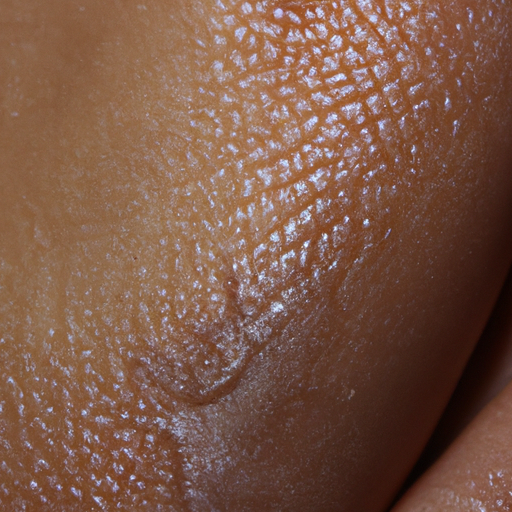The pursuit of radiant skin is a universal endeavor that transcends age, gender, and ethnicity. However, the journey to achieving a healthy glow is often marred by the presence of oily skin. As a dermatologist, I have encountered countless patients who grapple with the challenges of managing oily skin. This article aims to provide an ultimate guide to combat oily skin and unmask the radiance beneath.
Oily skin is characterized by an overproduction of sebum from sebaceous glands. While sebum is essential for keeping our skin hydrated and protected, excessive sebum can lead to a shiny appearance, clogged pores, and frequent acne breakouts. The causes of oily skin can be multifactorial, ranging from genetics, hormonal fluctuations, to environmental factors.
The first step in combating oily skin is understanding your skin type. This can be done through a simple blotting sheet test. If the sheet picks up oil from the forehead, nose, and cheeks, it’s likely that you have oily skin. Once you’ve identified your skin type, you can tailor your skincare routine accordingly.
The cornerstone of managing oily skin lies in cleansing. It’s crucial to cleanse your face twice daily with a gentle, oil-free cleanser. Over-cleansing can strip your skin of its natural oils, prompting it to produce even more sebum. Avoid harsh soaps and look for cleansers with ingredients like salicylic acid or benzoyl peroxide, which can help regulate oil production.
Exfoliation is another key step in your skincare routine. Exfoliating once or twice a week can help remove dead skin cells that clog pores and lead to breakouts. However, be cautious not to over-exfoliate as it can irritate the skin and exacerbate oil production.
Moisturizing is often overlooked by those with oily skin due to the misconception that their skin is already producing enough moisture. However, oily skin can still be dehydrated. Opt for oil-free, non-comedogenic moisturizers that hydrate your skin without clogging your pores.
In addition to topical treatments, diet can also play a significant role in managing oily skin. Consuming a diet rich in antioxidants, omega-3 fatty acids, and vitamins can help regulate sebum production. Limit your intake of processed foods, sugars, and dairy products, which can trigger oil production.
Lastly, it’s crucial to protect your skin from the sun. Sun exposure can stimulate oil production and cause damage to your skin. Always apply a broad-spectrum sunscreen with an SPF of at least 30, even on cloudy days.
In some cases, if oily skin is persistent and causing distress, it may be beneficial to seek professional help. Dermatologists can offer treatments such as topical retinoids, oral medications, or even hormonal therapies for women.
Achieving radiant skin is not an overnight process. It requires patience, consistency, and a holistic approach that encompasses skincare routine, diet, and lifestyle changes. Remember that everyone’s skin is unique, and what works for one person may not work for another. Therefore, it’s essential to listen to your skin and adjust your skincare routine accordingly.
Unmasking the radiance beneath oily skin is indeed possible with the right knowledge and tools. By understanding the causes of oily skin and implementing an effective skincare routine, you can combat oily skin and reveal the healthy, glowing complexion beneath.



